Table of Contents
Jyotirao Govindrao Phule, often known as Jyotiba Phule, was a remarkable 19th-century social reformer, thinker, writer, and activist from Maharashtra. He dedicated his life to fighting against social discrimination and caste oppression. Phule’s work emphasized the principles of equality, human dignity, and justice, making him a pivotal figure in India’s social and educational reform movements.
Mahatma Jyotiba Phule Jayanti
- Mahatma Jyotiba Phule was born on 11th April, 1827 in Satara District, Maharashtra in a Hindu Mali caste family.
- He was a prominent social reformer, thinker and activist in 19th-century India.
- He dedicated his life to fighting against caste-based discrimination and advocating for the rights of marginalized communities.
- Social reformer Vithalrao Krishnaji Vandekar honoured Jyotirao Phule with the title “Mahatma“.
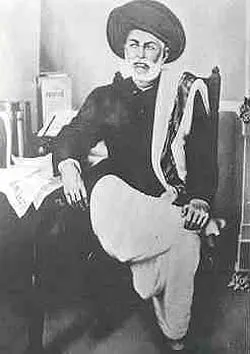
Who was Jyotiba Phule?
In India during the 19th century, Jyotirao “Jyotiba” Govindrao Phule was a well-known social reformer and thinker. Jyotiba Phule served as the movement’s leader against India’s widespread caste system. Phule fought for the rights of peasants and other people from lower castes and revolted against the Brahmins’ rule.
According to Jyotiba Phule’s biographer Dhananjay Keer, Vithalrao Krishnaji Vandekar, a fellow reformer from Bombay, gave Phule the title of Mahatma. Throughout his life, Mahatma Jyotiba Phule battled for the education of girls and was a pioneer for women’s rights in India. He is credited with founding the first Hindu orphanage for unfortunate children.
We’re now on WhatsApp. Click to Join
Jyotiba Phule Biography
Early Life and Education
- Birth: Jyotiba Phule was born on April 11, 1827, in Pune, Maharashtra, into a family belonging to the Mali caste, traditionally involved in gardening.
- Background: As a member of a lower caste, Phule experienced discrimination from a young age. His family was initially a part of the agrarian community, and his father supported his education despite the prevalent biases against educating lower castes.
- Education: Phule attended a Scottish Mission High School in Pune. His exposure to Western ideas on equality and rationalism played a crucial role in shaping his thoughts on social justice.
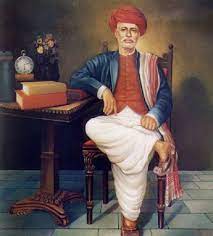
Jyotirao was a bright young man who had to give up on his education at a young age due to his family’s financial situation. He began by working on the family farm and assisting his father. A neighbour who saw the little prodigy’s talent encouraged his father to enrol him in school.
Mahatma Jyotirao Phule enrolled in the Scottish Mission High School in Poona in 1841 and graduated in 1847. He made a Brahmin acquaintance there named Sadashiv Ballal Govande, who remained a close buddy of his throughout his life. Jyotirao married Savitribai when he was just thirteen years old.
Ideology of Mahatma Jyotiba Phule
- A social revolution in Indian society began in 1848 as a result of an incident that motivated Jyotiba to fight against the social injustice of caste discrimination.
- Jyotirao received an invitation from one of his friends wedding who was from a high caste Brahmin family. But when the bridegroom’s family learned about Jyotiba’s roots, they humiliated and tortured him at the wedding.
- Mahatma Jyotirao fled the ceremony because he was determined to oppose the existing caste system and social constraints.
- He made it his life’s mission to relentlessly push against social majoritarian dominance and worked toward the emancipation of all people who were affected by this social injustice.
- Thomas Paine’s beliefs had a big impact on Jyotirao after reading his well-known book, “The Rights of Man.” He thought that the only way to tackle social ills was to educate women and members of lower castes.
Jyotiba Phule’s Contribution to Education
Savitribai Phule, Jyotiba’s wife, backed his efforts to guarantee women and girls the right to an education. Savitribai, one of the few literate women of her day, learned to read and write from her husband Jyotirao. Jyotiba founded a ladies’ school in 1851 and invited his wife to instruct the students there. Later, he established two additional schools for girls as well as an indigenous school for people from lower castes, namely the Mahars and Mangs.
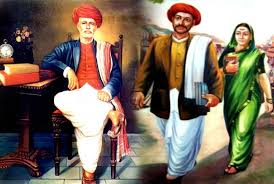
After realizing the miserable conditions faced by widows, Jyotiba founded an ashram for young widows and finally came to support the concept of widow remarriage. His era’s society was patriarchal, and women’s status was especially appalling. Female infanticide and child marriage were both common occurrences, with minors occasionally becoming married to much older men.
Before they reached adolescence, these ladies frequently lost their husbands, leaving them without any familial support. Jyotiba, who was distressed by their situation, founded an orphanage in 1854 to protect these poor children from dying at the brutal hands of society.
Jyotiba Phule as Social Reformer
- The traditional Brahmins and other upper castes were attacked by Mahatma Jyotirao and labelled as “hypocrites.” He ran an anti-authoritarian campaign and encouraged the “peasants” and “proletariat” to resist the limitations placed on them.
- He welcomed guests of different backgrounds and castes into his home. He supported gender equality, and he put his views into practice by including his wife in all of his social reform initiatives. He thought that the Brahmin used religious figures like Rama to oppress the lower caste.
- The society’s traditional Brahmins were incensed by Jyotirao’s actions. They accused him of corrupting societal rules and regulations. He was charged with representing the Christian Missionaries by many.
- However, Jyotirao was adamant and chose to carry on the movement. It’s interesting to note that Jyotirao had several Brahmin acquaintances who lent their support to the movement’s success.
Important Literature of Jyotiba Phule
- Gulamgiri – Critiqued the caste system and the exploitation of lower castes.
Jyotiba Phule and Satya Shodhak Samaj
Jyotiba Phule founded the Satya Shodhak Samaj in the year 1873. (Society of Seekers of Truth). He conducted a methodical deconstruction of historical ideas and beliefs before rebuilding one that promoted equality. The Hindus’ ancient holy texts, the Vedas, were harshly denounced by Jyotirao.
He used several other ancient writings to trace the origins of Brahmanism. He accused the Brahmins of creating cruel and exploitative regulations to preserve their social supremacy by repressing the “Shudras” and “atishudras” in society. The Satya Shodhak Samaj’s mission was to rid society of caste prejudice and free the disadvantaged lower caste people from the stigmatization brought on by the Brahmins.
The word “Dalits” was initially used by Jyotirao Phule to refer to everyone whom the Brahmins regarded as belonging to a lower caste and being untouchable. Everyone was welcome to join the Samaj, regardless of caste or class.
According to some documented accounts, they even encouraged Jews to join the Samaj. By 1876, the “Satya Shodhak Samaj” had 316 members. Jyotirao decided to build a communal bathing tank outside his home in 1868 to demonstrate his tolerant attitude toward all people and his desire to eat with anyone, regardless of caste.
Jyotiba Phule and Savitribai Phule
Jyotiba Phule and Savitribai Phule, a transformative Indian couple, were pivotal in the fight for women’s empowerment and education. As India’s first female teacher and a pioneering social reformer, Savitribai Phule courageously established the first school for girls, breaking societal norms.
Together, they confronted caste and gender discrimination, with Savitribai Phule leading efforts to expand educational opportunities for women amidst opposition. Their united front marked a revolutionary contribution to social reform in India, fostering change through education and advocacy.
First Girls’ School in India (1848): Founded with wife Savitribai Phule. He also opened night schools for Workers and Farmers.
Check Out: Savitribai Phule Biography
Jyotiba Phule Death Anniversary
Jyotiba Phule, a prominent social reformer, passed away on 28 November 1890. He was a pioneer of social justice, women’s empowerment, and education for the underprivileged in India. Phule, along with his wife Savitribai Phule, worked tirelessly to establish schools for girls and Dalits, challenging caste-based discrimination.
He is remembered for founding the Satyashodhak Samaj (Society of Seekers of Truth) in 1873 to promote equality and eradicate social evils like untouchability. Phule’s efforts laid the foundation for modern social reform movements in India. His death anniversary is observed to honour his contributions to creating a more equitable and inclusive society.
Legacy of Jyotiba Phule
Phule’s work laid the groundwork for social reform movements in India and has continued to inspire generations of reformers and leaders.
- Dalit Rights and Social Justice Movements: Phule is hailed as a champion of Dalit rights, and his teachings have influenced the Dalit movement and leaders like Dr. B.R. Ambedkar.
- Women’s Empowerment: Phule and Savitribai’s work for women’s education and rights is acknowledged as the foundation of women’s empowerment movements in India.
- Educational Reform: His vision for inclusive education led to the establishment of schools and educational programs for marginalized communities, setting a precedent for social inclusivity in education.
Jyotiba Phule UPSC
- Jyotiba Phule founded the Satyashodhak Samaj, a social reform organization that campaigned for the rights of women, Dalits, and other marginalized communities.
- He wrote some books and pamphlets, including Gulamgiri (1873), which is considered a classic of Indian social reform literature.
- He was a strong advocate for women’s education, and he founded the first school for girls in India in 1848.
- He campaigned against the caste system, and he worked to improve the lives of Dalits and other marginalized communities.

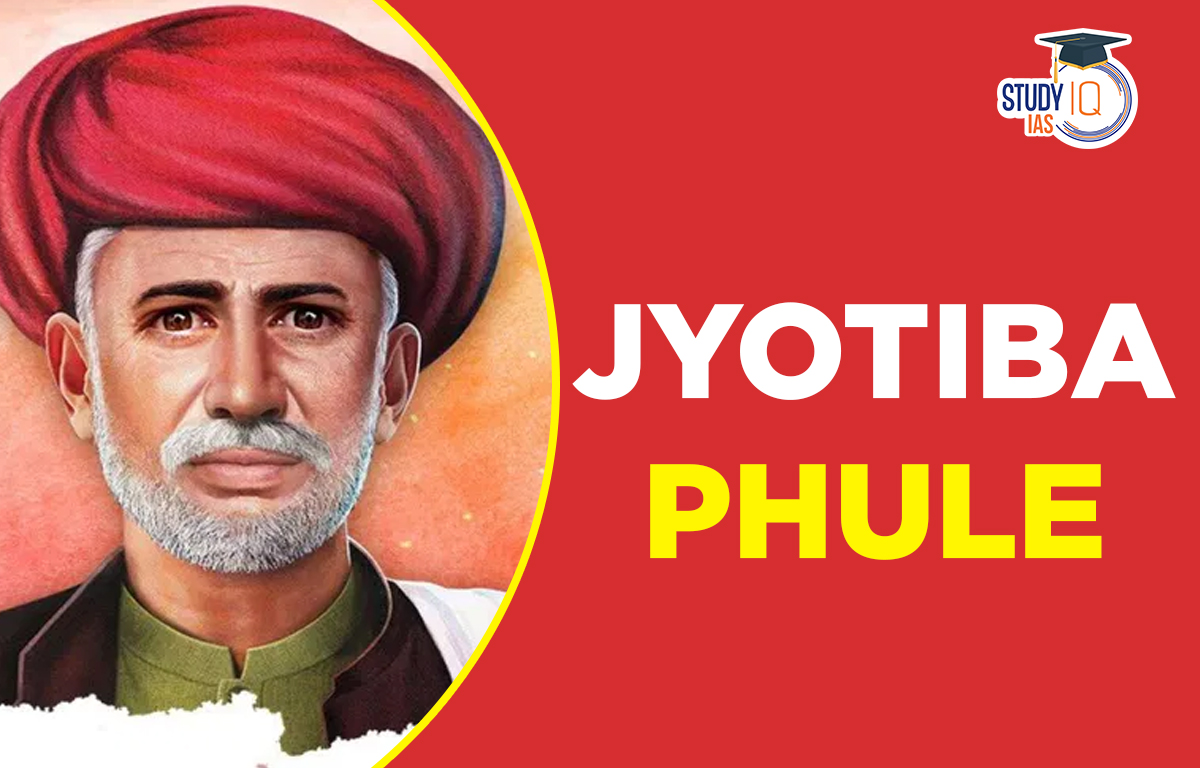
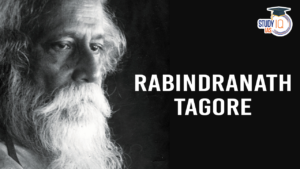 Rabindranath Tagore Biography: Life, Ach...
Rabindranath Tagore Biography: Life, Ach...
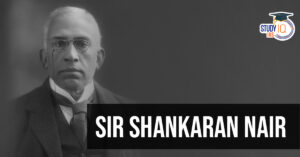 Sir Shankaran Nair and Story of the Jall...
Sir Shankaran Nair and Story of the Jall...
 Veer Baburao Pullesur Shedmake: The Forg...
Veer Baburao Pullesur Shedmake: The Forg...





















